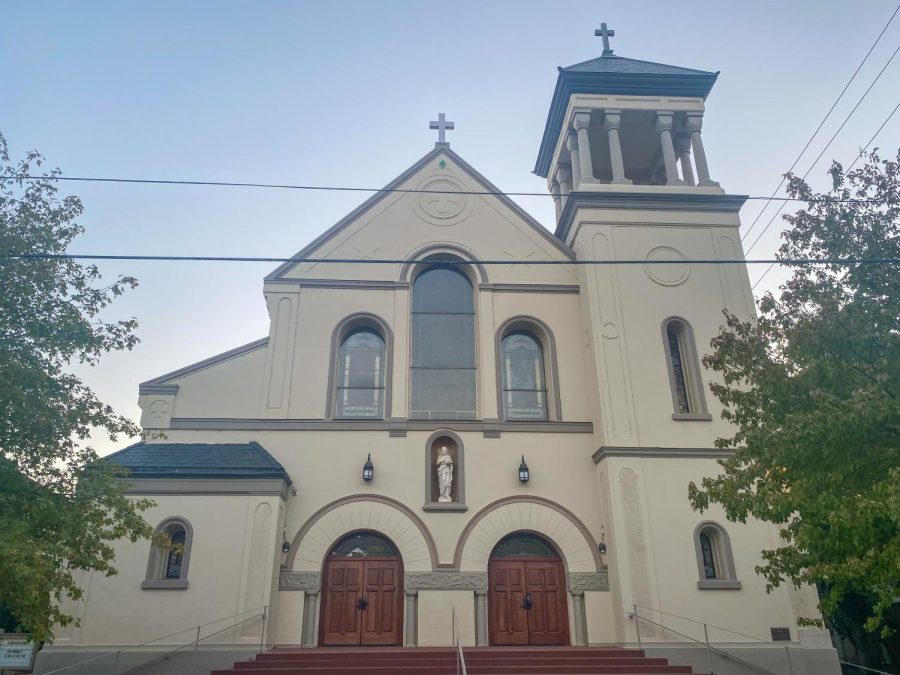Growing up a traditional Mexican Catholic meant going to church every Sunday. I learned to hold my tongue and not protest for two reasons: First, I wasn’t going to win. You don’t argue with Mexican parents, especially in regard to Catholic practices. Second, and more importantly, deep down I felt a sense of guilt and shame if I even thought about not wanting to go to church.
My Catholic upbringing instilled in me a black and white view of morality. I hyper-analyzed my thoughts and actions and became morally overscrupulous. I repented for every “wrong” I committed for fear I might go to hell.
My practice became obsessive. I had a script memorized that I used as prayer every night. The one thing that changed were the sins I was repenting for that day. I never missed a night of prayer because the guilt kept me awake. It was my ritual.
While my family stuck to practicing their faith on Sundays, I worried that wasn’t enough. This came with a fear that my family wasn’t committed to salvation. I never felt a sense of moral superiority, rather I feared for their well-being. Selfishly, I was also deathly afraid of being alone on this spiritual journey both in this world and beyond.
This feeling intensified during my first year of college when I stopped going to church for the first time altogether. By any conventional standard of Catholicism, I was sinning, but I wasn’t doing anything “out of the norm” for a college student.
Moving away from home challenged my beliefs about the world, morality and religion. Being exposed to a variety of different people and beliefs led to a diversity of ideas that I don’t think I ever could have experienced had I not branched out.
My faith was fundamental to my identity. It was a belief that I never thought I would question. I was mistaken.
Elisabeth Kübler-Ross, a Swiss-American Psychiatrist, developed a model for those experiencing grief. Five emotions are highlighted: denial, anger, bargaining, depression and acceptance.
People are different and this model does not represent everyone’s experience of loss, but I found interesting parallels as I grieved the loss of a former set of fundamental beliefs.
Denial was the longest and most profound stage that I experienced. I convinced myself that I enjoyed going to church even though my state of boredom constantly led to me failing to internalize anything the priest said. I began to experience cognitive dissonance as the knowledge from classes on ethics and the history of civilization conflicted with my religious beliefs.
I felt anger, and probably still do, that I was raised in an environment that fostered guilt and fear. I don’t think anybody should feel guilty about drinking and partying on a Friday night, or having premarital sex, or even failing confess to a stranger in a room of a church. Nor should we be in a constant state of fear that such actions may lead to eternal suffering. Perhaps the feelings of guilt and fear were my own doing, or perhaps I’m still in denial.
I bargained and placed blame on others. I thought if I went to a church that was more interactive and personal I would not have lost my faith. Perhaps Catholicism is the wrong Christian denomination for me. I tried convincing myself otherwise. I couldn’t.
The fourth stage of depression manifested itself as worry. I worried that my parents would view me differently. I didn’t need them to agonize over the belief that their son sabotaged his salvation. That is a burden I do not want weighing over me. To this day, I still avoid revealing the extent of how much my moral and religious views have changed.
Change is inevitable. Acceptance to change is comforting. I now realize that I did not lose anything, rather things look different than before and that can be terrifying. I find solace in the fact that others share similar experiences. The world feels less lonely that way.
Aldo Perez can be reached at orionmanagingeditor@gmail.com or @Aldo_Perez on Twitter.









Eddie Mendes // Oct 16, 2021 at 2:49 pm
A psychologist once said it is all about the shame we care. Shame about our bodies, our attitudes, our choices and what else that build our personality.
Catholic organized religion is based in much shame because it’s the way they have to subjugate you. The smell of the sin in your body, or the way you disposal your body to others, even the intentions you care about someone.